Our love-hate relationship with drama remakes and adaptations
by javabeans
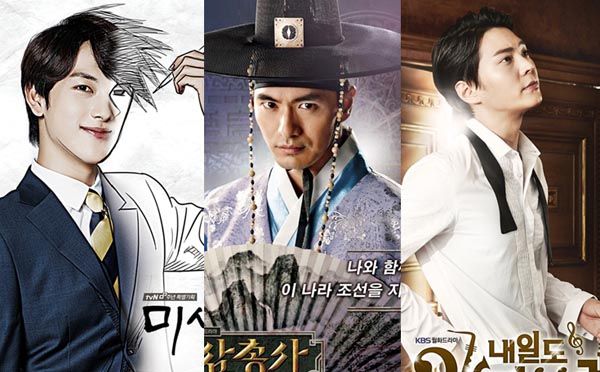
“They’re remaking another drama?” *Boo, hiss, wails.* I’m pretty sure that’s a familiar script for most of us who’ve been following dramaland for a while, and one that’s cropped up with particular frequency in recent months and years.
Adaptations and remakes are nothing new—people will retell new versions of old stories until the end of time—but the recent surge has spurred increased talk about the trend. I find it interesting to note the tenor of the commentary, because even though the fan voice tends to be united (in dismay, most often), the broader public response encompasses a pretty wide range.
I don’t have a singular stance that applies across the board—say, for instance, “remakes are the devil”—but there are enough issues in play that I think the topic merits its own discussion, separate from recaps and narrative-focused commentaries. So I won’t be making a central argument here (sorry, high school essay-writing lessons), because I don’t know that I feel one thing about this. Rather, I want to open the conversation and maybe see where it leads us. I guess I should warn you up-front that rambling is afoot, but you probably already know to expect that of me. No apologies!
(I realize that remakes and adaptations aren’t interchangeable terms, and I don’t want to lump everything into one catch-all pot: The manhwa-into-drama adaptation, for instance, is different from the cross-national drama remake, which is different from the movie-to-drama reboot, and so forth. These projects encounter a similar set of complications and pitfalls, so for the purposes of this discussion I’m often talking about them within the same overall context. But we’ll distinguish when necessary.)
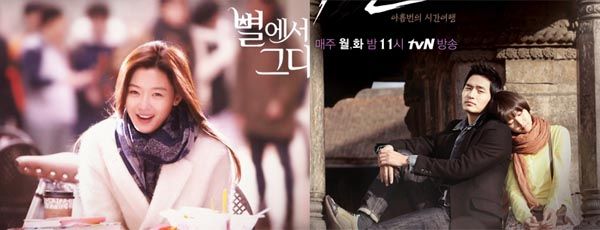
Why can’t anybody leave a good thing alone? is the prevailing cry whenever another property gets snatched up for remaking, and it’s a knee-jerk reaction that seems both completely understandable and sadly futile. I feel that chagrin myself whenever Hollywood, for instance, takes something I love—something with nuance and character—and then proceeds to suck out its soul to replace it with empty gloss. (See: Il Mare (The Lake House) or My Sassy Girl or Oldboy. Or scratch that; don’t see them. And I’m more nervous than optimistic for upcoming drama remakes of Nine and You From Another Star; Good Doctor is less worrisome, mostly because I care less about that show but also because it’s a concept that I think would find a ready home in CBS’s medical-procedural stable.)
On the other hand, the Korean industry is just as often the perpetrator, and in those cases I try to keep an open mind that perhaps the end result will be worth the attempt, or that this latest version may even contribute something new to the dialogue. It probably has more to do with the fact that we cover Korean dramas here and not Hollywood ones, and I aim to keep hope alive as long as possible if only for my own mental well-being. (Who needs to introduce stress before it’s necessary? At least hope is its own reward.)
There are concrete reasons for producers finding the remake/adaptation an attractive option, and longtime drama fans are probably aware that the relationship between business and creativity doesn’t always tilt the way we want it to. (Okay, fine, it never tilts the way I want it to! But until I am a multimillionaire with money to spend on funding drama productions, I just have to accept certain bitter realities.) Remakes have built-in name recognition, and are much easier to launch than an original series that must be planned and produced from scratch. Personally I’d like to tell broadcasters to suck it up and just do the work—because I don’t care if it’s hard, I care if it’s good—but again, my unfortunate lack of millions is really getting in the way here.
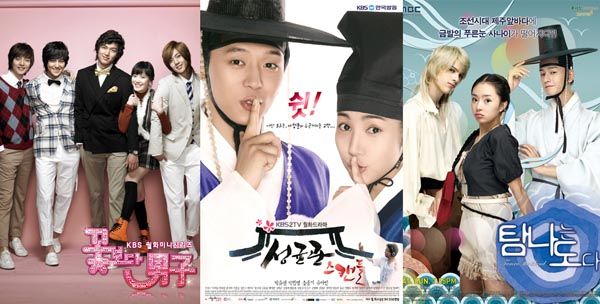
I’d also like to put aside, for the moment, the broad lamentation regarding the dearth of original ideas. It’s not that the complaint isn’t valid, but I think we all agree that fresh stories are always desirable, and that more of those in dramaland would be nice. Nobody’s arguing for fewer original dramas! But it’s a preaching-to-the-choir sort of speech, of the kind the choir makes while beating a dead horse into a bloody pulp. There’s also the point one could make about there being no new stories under the sun, and if we’re taking that kind of absolutism to its extreme (i.e., retelling old stories is bad and therefore pointless), then perhaps we should all just curl up at home with our battered copies of Aeschylus, because once a story has been told, it must never be told again. *Hiss* *Shrivels from the sun*
The thing that makes adaptations and remakes both challenging and fascinating is: They serve two masters. One is the existing fanbase, whom you do not want to betray, while the other is the broader mainstream audience, whom you do not want to alienate by serving a small niche of insiders at the expense of new viewers. This is a tricky balance to strike and, as we know, not often done well.
The double-edged sword is especially keen when we’re talking about hot properties like Hana Yori Dango (Boys Over Flowers) or Nodame Cantabile (Cantabile Tomorrow), whose heightened profiles create immediate interest that is nearly impossible for a brand-new show to match. Not without substantial effort and cash, at least. It’s that same interest that makes backlash especially scathing, however, if/when fandoms aren’t pleased. And once you get one Boys Over Flowers breaking out and becoming a smash hit, everybody’s clamoring to get the next one, and then we just end up with a river of tears cried by sad manga lovers.
This is something we don’t necessarily see with adaptations like Three Musketeers or Surplus Princess, which almost don’t feel like adaptations because they’re based on well-known classics and thus are granted more latitude. But they, like the other dramas mentioned here, are doing the same job of taking K-drama twists to make things their own. (Maybe we can look to that as support for the argument that more freedom in interpretation yields better results. A shame that producers aren’t often granted that freedom, though!) Fated To Love You also had a funny trajectory in that the Taiwanese original was wildly popular at home and throughout Asia, and then the Korean remake was successfully exported and enjoyed a fresh wave of popularity in China and Taiwan. But that’s the anomaly.
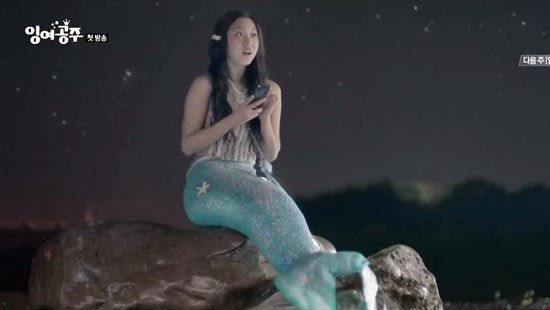
It’s enough to make you wonder whether it’s better being an adaptation of an original property that wasn’t that popular, which mitigates the potential feeling of betrayal. Pretty Man and Tamra the Island were both manhwas that had smallish niche audiences, so when both dramas underperformed (Tamra because of low ratings despite a cult following, Pretty Man because it was a mess), they receded quietly, without incurring the level of netizen scorn reserved for more high-profile projects. The bigger the target, the harder they fall. (Other adaptations that came and went quietly: Birdie Buddy, Nail Shop Paris, Her Lovely Heels, Strike Love, A Man Called God, My Fair Lady (Take Care of the Lady), Mary Stayed Out All Night, and Hot-blooded Salesman, among more.)
This is also why, despite the impression that it’s easier to write a remake than an entirely new drama, that’s only true from one angle. New dramas aren’t hamstrung by the same expectations and prejudices that these remakes are, which are as much a handicap as they are a helpful guide. Dramas that try to make everybody happy may instead end up making nobody happy.
Because really, the baggage can be paralyzing, and choosing to honor that over a new vision could very well sound your death knell. Consider the drama that’s a so faithful and afraid of stepping out of line that it presents a story with exactly zero surprises. Yawn and yawner.
This is one aspect I find very enjoyable about Cantabile Tomorrow, because it’s just different enough that I appreciate where they’re trying to stretch a bit; the K-drama hews closely enough to Nodame Cantabile’s storyline to feel like an adaptation, but it’s thoughtful about where it chooses to deviate. The hero role of Yoo-jin is like Chiaki, for instance, but the overall flavor of the character feels like something Joo-won has created on his own. I have seen comments that Yoo-jin isn’t cold or harsh enough, and that because Tamaki Hiroshi played him more aloof, Yoo-jin is therefore wrong. I agree that Yoo-jin is the gentler version, but surely both actors still register on the “cold, gruff” spectrum of standoffish heroes, so neither interpretation strikes me as wrong. They’re two ways to interpret what the manga created, and frankly, I love that we have both.
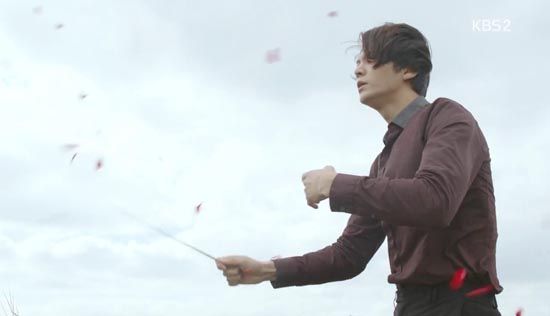
Hana Yori Dango/Boys Over Flowers is another example where the heroes were clearly from the same mold—haughty, imperious, in desperate need of some humbling—but diverged in key ways, and I was also happy to have both portrayals to watch. (I do have to say that the heroines were unequivocally better in the Japanese dramas, though.)
I frequently see the argument “This didn’t happen in the novel/manhwa/anime, therefore the drama is wrong” leveled against a show as though the act of deviating automatically invalidates the choice. A bad choice is a bad choice, but let’s not assume that different necessitates bad. In this regard I find the intensity of the criticism against Cantabile Tomorrow surprising; to me, it’s a light, good-natured show that’s doing a pretty good job as a drama and as a remake, albeit with flaws in both areas. What I find odd is the way in which these remake debates can go askew and even revise history, misrepresenting the original dramas as infallible masterpieces and the remakes as worthless drivel. I have trouble accepting such blanket arguments. I found Hana Yori Dango superior to Boys Over Flowers in most ways, but man if Boys Over Flowers didn’t have a strange manic pull that sucked me in, in a way I didn’t feel with the J-drama. Being better in most things didn’t make it better in all things.
Nodame Cantabile is a case where I’ll actually argue pretty strenuously that the Korean version is improving on the execution in many ways, and feels more emotionally resonant than the Japanese drama did (for me! I speak for myself!)—the J-drama was fully enjoyable and I daresay nobody tops Ueno Juri as the heroine, but I thought it emotionally lightweight and very, very slapsticky. The Korean version is held back somewhat significantly by Nae-il being less relatable than Nodame, but I also think Yoo-jin and the side characters are doing it more for me here (okay, Mine is a draw with Il-lac). At first I’d wanted to cry at the thought of losing Rachmaninoff’s Piano Concerto No. 2 as Yoo-jin’s solo, until I heard the Grieg and felt the show had done the work to make the selection thematically relevant—it’s powerful, sweeping, and intense, which is reflected in Nae-il’s tumultuous response to it. And while the S Orchestra’s rendition of “Rhapsody in Blue” was inspired in the original, I thought the “Mambo” perhaps even a cut above as a representation of the orchestra’s character—all fast, crowd-pleasing fun.
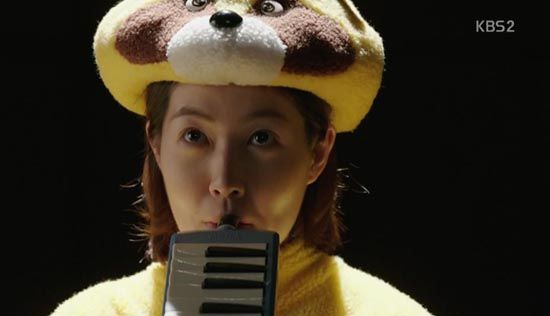
All of which I say not to convince you to agree with me, but to present the argument that older isn’t automatically better. And that a new adaptation necessitates some new interpretation, no matter how familiar the story. And that a new version can sometimes build upon the older to draw out and improve upon the basis. I love the story of Nodame, but I wanted to feel more emotionally drawn into the world—and that’s what Cantabile Tomorrow gives me (even if I have to put up with some additions that I dislike, such as the teacher drama). Ultimately isn’t this a win-win?
Even so, let’s suppose for a moment that a remake is indisputably worse than the original—can we still agree that harping is an activity we’d like to see cease? Consider a scenario where you go to a party in a good mood, only to run into a guest who follows you from room to room pursuing an argument:
“The party I went to yesterday was better.”
“That’s nice.”
“It had better food than this one. Better music too.”
“Okay.”
“It was better in every way.”
“So I hear.”
“I don’t even know why they bothered throwing this party.”
“I’m going to go over here now.”
“I’ll follow you, so that I can tell you more about all the ways in which the other party was better.”Murder ensues.
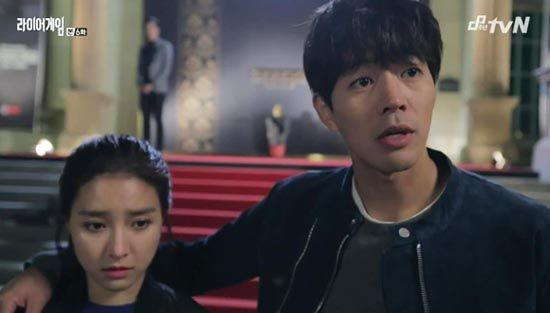
It’s a curious exercise to watch the response to Cantabile unfold simultaneously with the response to Liar Game, because I’ve seen the original(s) for one and not the other. Hearing remarks that the original Liar Game is better is intriguing because I’m enjoying the K-drama wholly, and the possibility of a better version makes me curious—but it doesn’t make me like the K-drama any less. What’s the purpose in insulting one drama to elevate another? Ultimately my conclusion is the same: That I enjoy these K-dramas as K-dramas, and what I know of the world outside of those 60-minute episodes is incidental to how I feel about the show itself.
It’s why I’d argue that the mainstream television audience ought to always be the production’s priority over adherence to the original story, because in adapting this idea for this particular medium, you’d better make sure you serve this medium. If the remake makes an effort to find its own voice, at least it can stand on its own feet even if the fanbase hurls epithets and exits in droves (…though let’s be honest, sometimes it’s more like exiting in drove).
Because what worked in a different medium—or a different time, or a different cultural context—may not work in the here and now, so a remake does in fact necessitate deviation. A beat-for-beat remake, snatched from one time and plonked down in another, starts feeling like some hybrid monster, ill at ease in its own skin. Some dramas stand the test of time because we’re able to view them through the lens of nostalgia, or history; if you took Autumn Fairy Tale and set it in the present day, we’d have a lot less patience for what are now trite misunderstandings and melodramatic twists, even when those are the same moments that gripped our hearts and made us cry back in the day. It’s the misstep I felt with Strike Love, the 2009 baseball drama based on a 1986 manhwa that felt like it had been lifted wholesale from that time. It felt dated, as though nothing about it had been updated to reflect the new milieu.
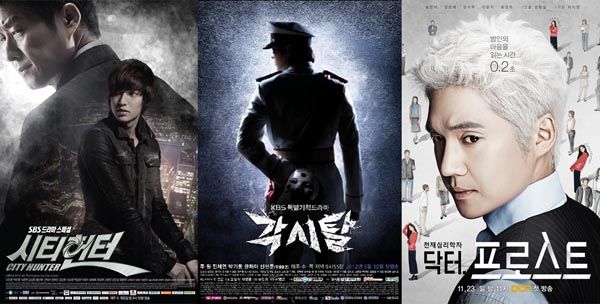
To look at the issue from another perspective, it’s another interesting exercise to juxtapose these cases of criticized adaptations with those that surpassed their source material. Gaksital may have had its fans when it was a black-and-white manhwa, but the drama brought new dimension to the birth of a dark national hero and made us feel the range of emotions in hi-def, full-colored glory. Coffee Prince was a fluffy romance novel before a thoughtful PD transformed it into something modern, sentimental, and insightful. The drama version of Sungkyunkwan Scandal, based on a novel, took a familiar cross-dressing reverse-harem premise and elevated it with smart casting, adorable chemistry, and sharp directing choices. And The Moon That Embraces the Sun, for all its simplistic melodrama, was a juggernaut of a show that far exceeded the popularity of its novel inspiration.
City Hunter is an example of a K-drama that was really only an adaptation in concept—it was loosely based on the manga, but reset the scene, added a different backstory, reshaped the characters, and turned into a prequel, so that the end result resembled almost nothing of the original save for the title. But it succeeded by being a damn entertaining drama, regardless of its origins, and in my book that puts the drama into the plus column. Since I wasn’t much of a fan of the original to begin with, to me the 2011 K-drama was even an improvement on the source material (…though perhaps diehards of the 1980s manga might have a different argument to make).
These cases are much better, I think, than the flipside where a property is so intent on preserving the original that it forgets to be a drama. Because then you’ve failed before you’ve begun. (Other adapted dramas that were arguably as or more successful as TV shows: Painter of the Wind, The Return of Iljimae, Full House, Goong, Gourmet, Capital Scandal, and the big one these days, Misaeng.)
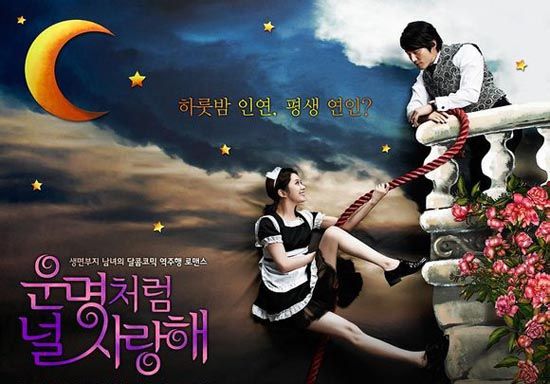
Speaking of which, Misaeng is currently positioned to become the next pop-culture sensation, and for good reason: It’s smart, it’s thoughtful, its portrayal of what it’s like to work in modern Korea is so keen as to be painful. It captures a zeitgeist that started with its webtoon, which was a sensation in its own right and has now reached bestseller status. What I find fascinating is how the drama production managed to capture the soul of the webtoon so accurately in such a different medium, which speaks to the consummate skill of its director. In Misaeng’s case, the spirit of the original has been transferred without necessarily copying everything frame by frame.
And really the secret to success, for Misaeng specifically and for remakes in general, lies chiefly in the execution—more than casting or content, say, or buzz or faithfulness to an original idea. You only need to look at cases like Faith versus Dr. Jin to see how two very similar concepts (so similar as to incur legal battles) could produce two such disparate shows. Witch’s Romance produced a surprisingly charming remake earlier this year despite being a super-obvious story with no huge surprises, buoyed by its writing and pacing and charismatic leads. On the other end of the spectrum, Level 7 Civil Servant’s spy-meets-spy romance gave rise to one zippy, fun movie and one drama about which we will never speak again.
So maybe what it all boils down to is the most obvious statement of all, which I feel silly saying plainly for its obviousness: Don’t underestimate the power of a good story (or your viewers’ intelligence), and the question of who said it first becomes less important than the fact that you’re entertained—and we’re all really here for the entertainment, aren’t we? Make good dramas, and the audiences will respond. If you build it, they will come.
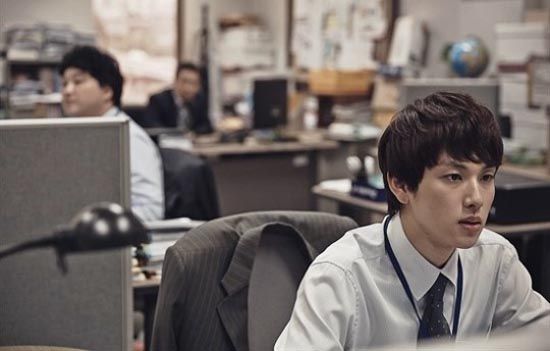
Images used, in order: Misaeng, Three Musketeers, Cantabile Tomorrow, You From Another Star, Nine, Boys Over Flowers, Sungkyunkwan Scandal, Tamra the Island, Surplus Princess, Cantabile Tomorrow, Cantabile Tomorrow, Liar Game, City Hunter, Gaksital, Dr. Frost, Fated To Love You, Misaeng
RELATED POSTS
- Cantabile Tomorrow: Episode 1
- Misaeng: Episode 1
- Liar Game: Episode 1
- Surplus Princess: Series review
- Three Musketeers: Episode 1
- Fated To Love You: Episode 1
- Pretty Man: Episode 1
- Gaksital (Bridal Mask): Episode 1
- City Hunter: Episode 1
- From the manhwa page to the big screen
- Boys Before Flowers: Episode 1
Tags: 1 show to rule them all, adaptations, Boys Before Flowers, Cantabile Tomorrow, City Hunter, Coffee Prince, Fated To Love You, Gaksital, Hana Yori Dango, Liar Game, Misaeng, Nodame Cantabile, Pretty Man, remakes, Strike Love, Sungkyunkwan Scandal, Surplus Princess, The Moon That Embraces the Sun, Three Musketeers
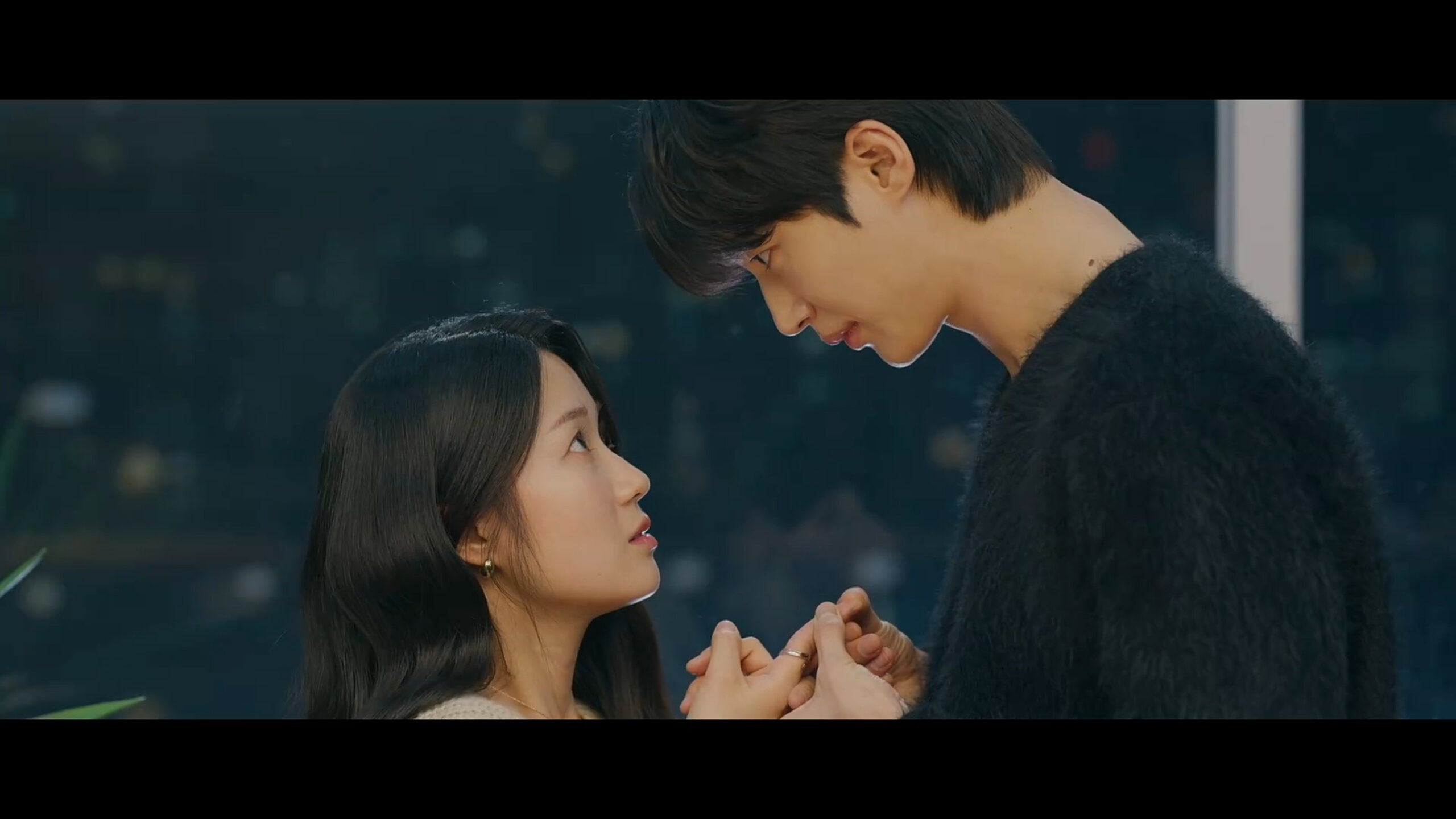
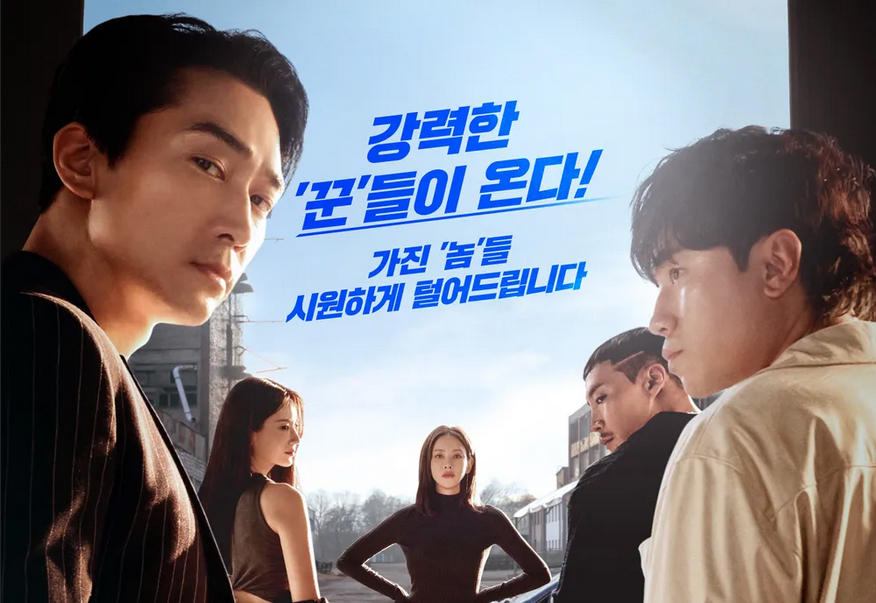
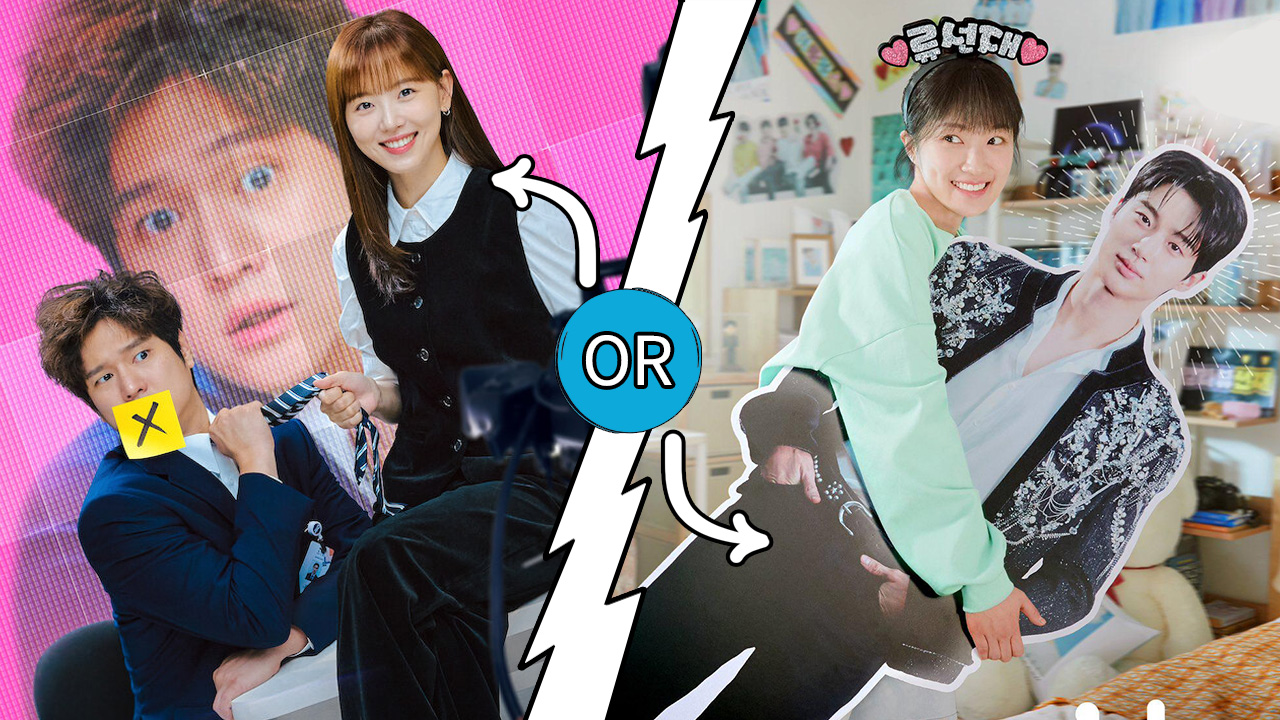
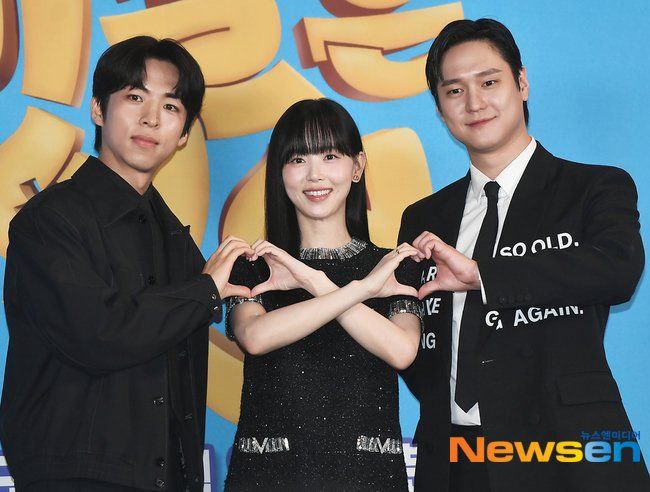
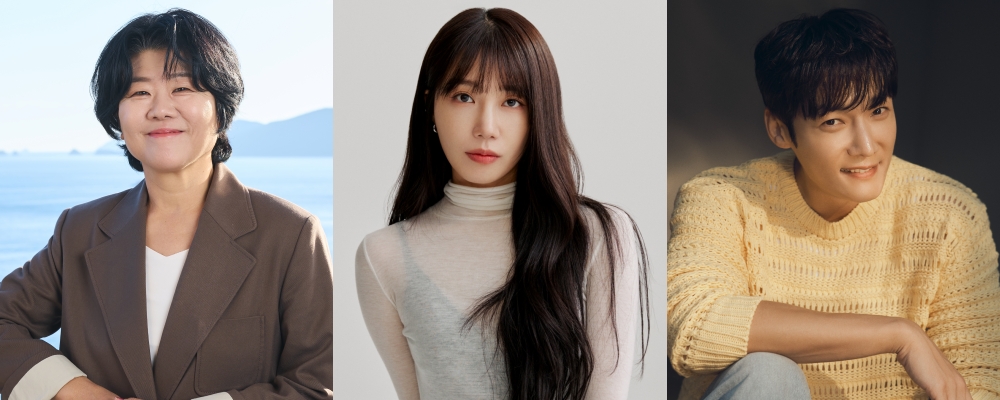
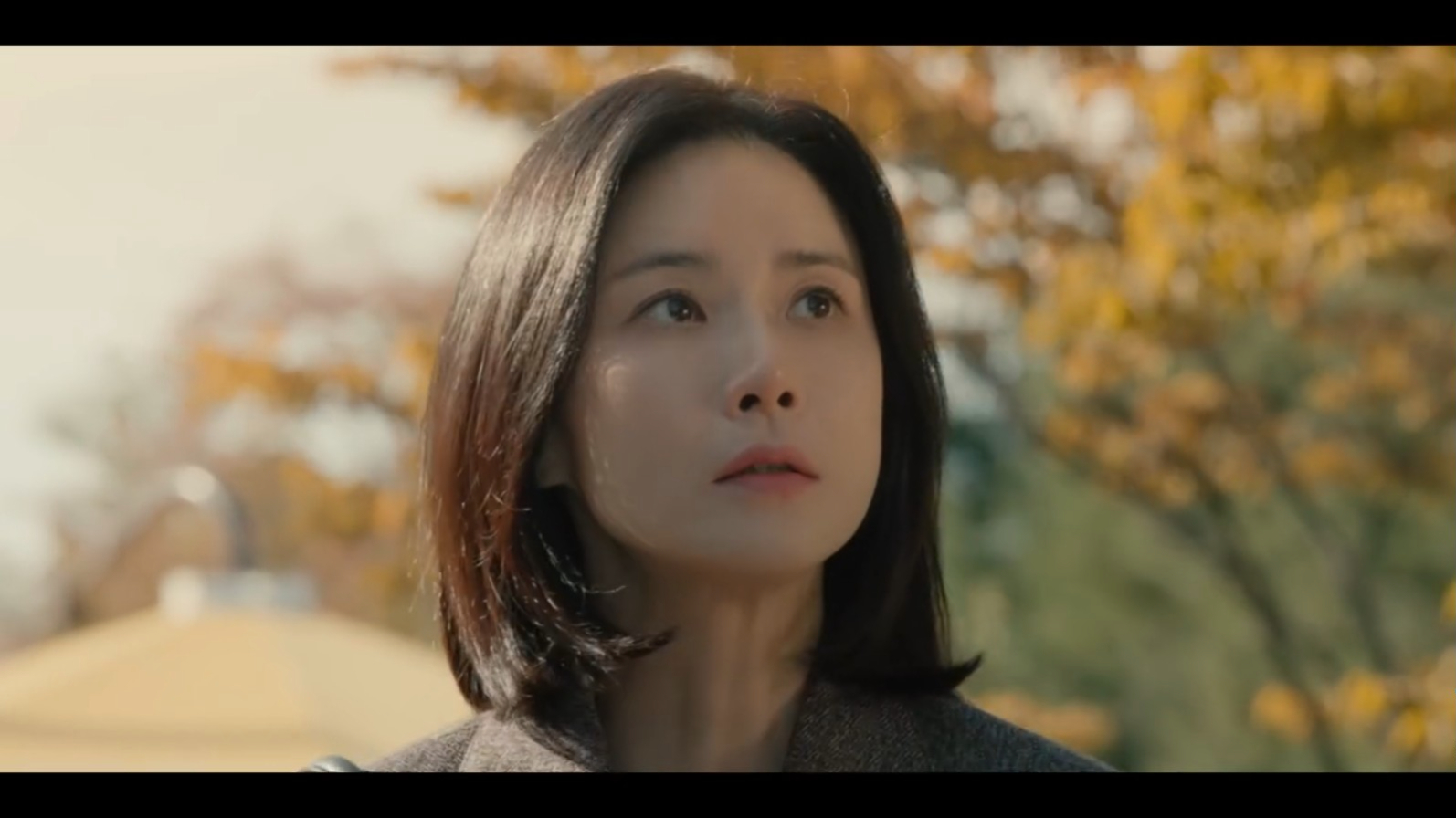
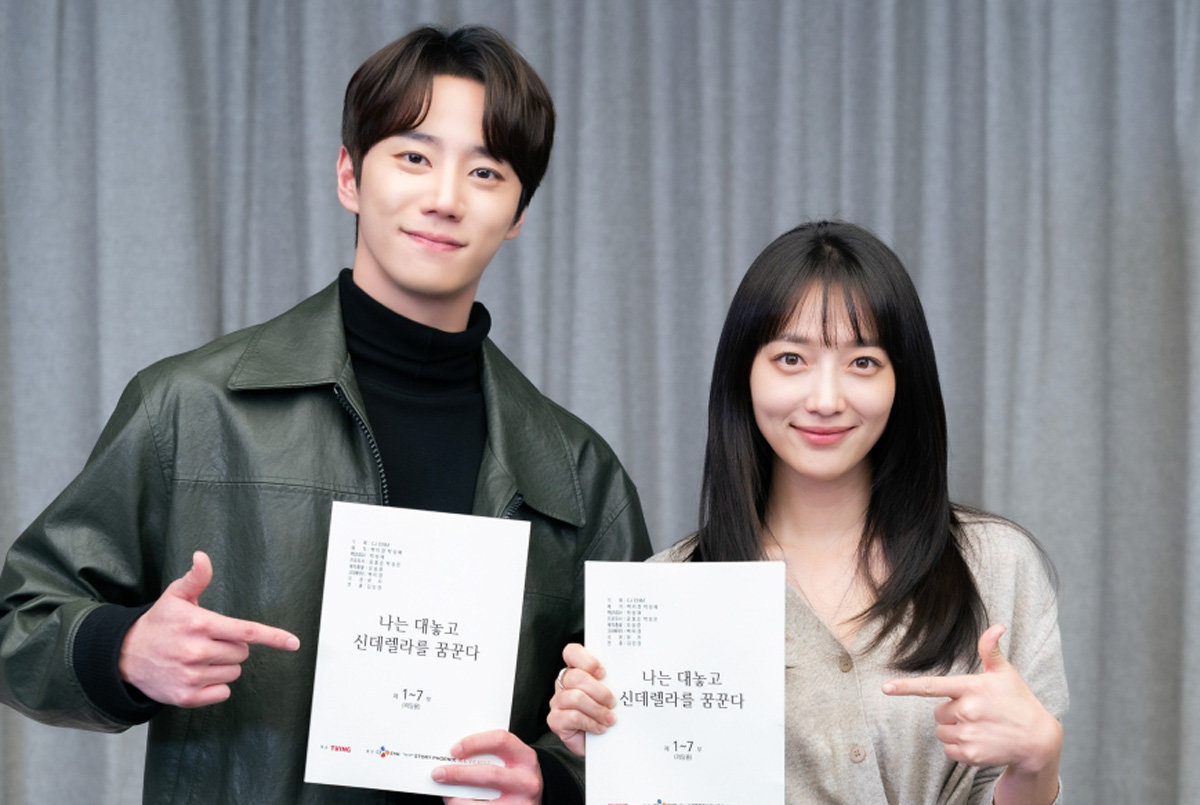
![[Beanie Review] Queen of Tears](https://d263ao8qih4miy.cloudfront.net/wp-content/uploads/2024/03/QueenOfTears_reviewb.jpg)
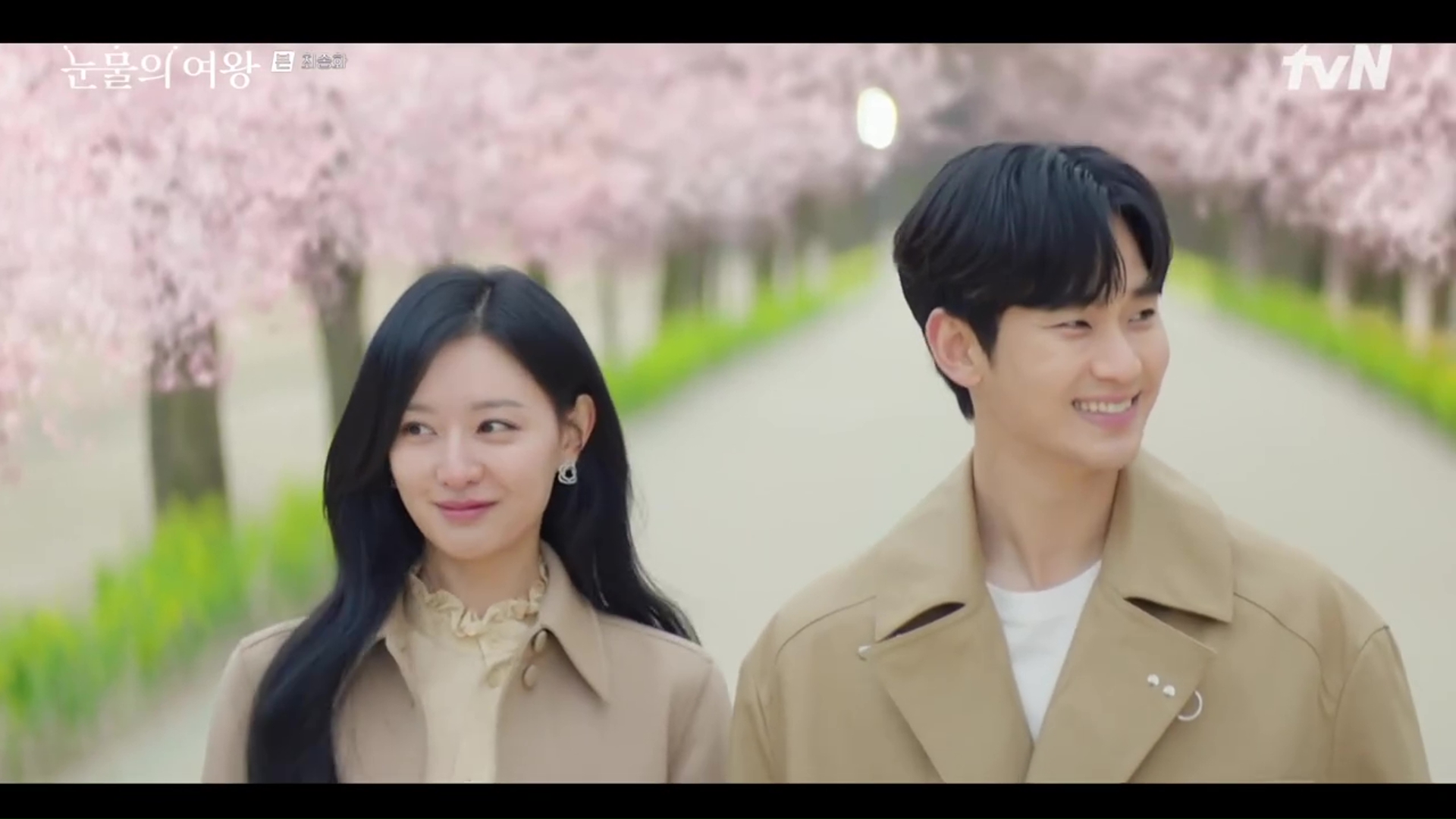
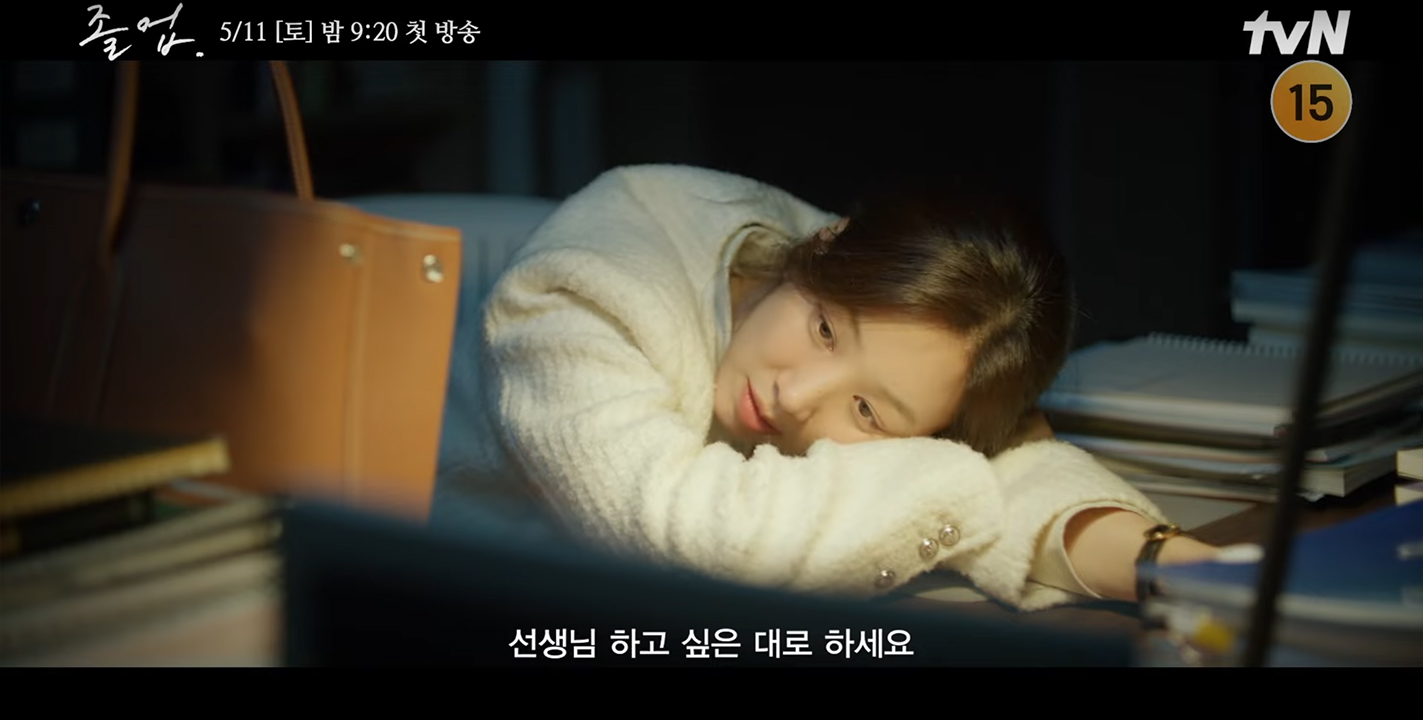
Required fields are marked *
Your email address will not be published. Required fields are marked *
51 juniper
November 10, 2014 at 9:08 AM
I got really excited when I saw Sungkyunkwan Scandal was in this article, until I got to the bottom and saw that it was talking about the book. Well, that makes sense, as I'm concerned about lifting material rather than adaptation. I don't know, I'm sure no one besides me will care this much (which is probably way too much). But has anyone who's seen both Sungkyunkwan Scandal and Painter of the Wind noticed that SKKS's plot is incredibly derivative of PotW? I understand they're both based on books, but as far as I can tell (based on English translations online, which is far from a perfect source, I know), the main plotline in the drama SKKS is not a part of the book.
***SPOILERS FOR BOTH***
In PotW, Yoon-bok's father is an artist who hid the official portrait of Sado, and was killed while moving it to its final hiding place. It's the same in SKKS, except Yoon-hee's father is a professor and it's a scroll. In PotW, her teacher (Kim Hong-do) was good friends with her father, and is looking for his daughter. He's the first one to find her out. In SKKS, it's the same, though they neutured the professor role (just kept his friendship with the Jeongjo) and split his romantic storyline into Sun-joon and spread his murdered-friend story to cover Jae-shin as well (except it's his brother). But he's obviously a lesser copy of that character stuck in there to plug up the structure. And all of this is poorly executed, just sort of tacked onto the rest of the drama (which was fun and cute and had Goo Yong-ha in it, 'nuff said).
But basically, SSKS lifted the main plot of POTW more or less intact, and what's more, in my opinion they dumbed it down, and failed at the intelligence, nuance, and emotionality that made PotW so great. I mean, besides the obvious gap in quality as a gender bender (which is just too enormous to even bother commenting on, plus Moon Geun-young vs. Park Min-young just isn't a fair fight), as well as in plotting, writing, intrigue (PotW as a sageuk>>>>>>>>>>>>SKKS as a sageuk), I feel that to see the difference you need look no further than the gisaeng character in both (another character I assume was transplanted, but even if she wasn't this is true). In PotW, the loveline between the heroine and the gisaeng is a) moving and tragic love story that can never be consummated as man and woman (the way they both view their relationship) but in the end transcends the body, and b) a lovely and nuanced examination of gender and sexuality (Yoon-bok is socially male, but seems to be a heterosexual woman; what Yoon-bok yearns for and looks for in Jung-hyang is her own lost femininity, but at the same time, she despairs that she cannot be the man Jung-hyang is in love with). In SKKS, the gisaeng basically serves no narrative purpose, and has no role beyond comedy, making Ha In-soo's head explode, and getting Sun-joon jealous. Oh and being a secret ninja in the end.
Required fields are marked *
52 Mala
November 10, 2014 at 9:54 AM
NC is far from being emotionally lightweight or merely slapsticky. That's a bit like looking at the surface gloss of a K-drama and writing it off. Its what goes on underneath that makes it so resonant and enduring or indeed why even a K remake happened. Obviously the K-drama is going to have its fans especially if you like certain K tropes which are in play in the TC version. Generally this is prettier, more idealised and highly romantic. This approach does dilute female protagonists. So while there are wails about not so strong female characters in K dramas its really part of the whole package. Which is fine - it's a version for a different market and the final analysis is how it works on its own and whether Korean auds take to it.
One of the other things that happens is a larger market/fanbase drowns out the original. Plenty of people seem to like the American My Sassy Girl but it's impossible for fans of the K-movie to like it - and I haven't even bothered with the J version by the by because the Korean ending cannot be so perfectly replicated elsewhere. So you have massive stabs of irritation that the US version has become a more known version that comes up in searches and is generally everywhere. Also true of Brit dramas with US versions. That's precisely what happens with the J and K dramas. So I am glad you brought up your irritation with Hollywood remakes because its not some mean rant that NC fans are on when they don't take to remakes.
Having said that remakes do happen, its 8 years since NC first screened, it has had its time under the sun and even the most diehard fan has to realise that things move on. Or just rerun their old tapes.
Required fields are marked *
53 john
November 10, 2014 at 9:57 AM
The K version of Liar Game is fine . The less I say about the other show, the better.
I'm really enjoying Yoo Na's Street , which is a remake of The Moon of Seoul, revisited by the author 20 years later.
Required fields are marked *
54 jkfan
November 10, 2014 at 10:02 AM
Remakes crossing cultures will always be different no matter what. I personally liked the K-drama Boys over Flowers. It spiked my interest to watch the J-Drama Hana Yori Dango version, and I thought both were very good. I think people should be open minded, however as I say this, I know that in Chinese Dramas whenever they make yet another adaptation of "Jin Yong's" Wuxia story of "Condor Heroes" the 80's TVB Hong Kong version to this day is still the best version. The main heroine is one of those that requires the actress to have a unique sass to her that makes her have to be lovable and yet you would be awed by her smartness and tact. No one to my mind has come close to this day what Barbara Yeung did for the character. So, I can see how some people just no matter what will not accept a remake. I am more inclined to accept a remake if it was different cultures aka, Jdrama to Kdrama or to Chinese drama. However, when the remake is of the same story in the same culture, and the remake is bad, then I would say, put the money in another story or a new drama completely.
Required fields are marked *
Beanfan
November 10, 2014 at 11:21 PM
*sigh* Barbara Yeung... Miss miss miss her!
Required fields are marked *
nanner
October 19, 2015 at 12:29 PM
me too!
i find remakes in the same culture to be more annoying than a remake in another.
Hanazakari no Kimitachi e was a 2007 jdorama that was almost as popular as hana yori dango yet they created a terrible remake just 4 years later. ugh!
Required fields are marked *
55 jkfan
November 10, 2014 at 10:12 AM
Or take the remake of the "Princess Pearl" by Qiong Yao. The 2002 version, original version of the drama was so beloved that it was aired 10 years straight over and over in China. The 2012 remake on the other hand, with the same author/writer helmed by Qiong Yao again, who was able to find two girls that has the same face or really very exact features of the original heroines faces but the actresses cannot get the same feel as in the original. This is one of those stories that should not have been remade at all especially if the actress is not strong in the acting department to pull off a heroine that is Strong Willed, stubborn, always get into messes that her friends have to help, but she is also very lovable at the same time, she is very smart, but is not educated, so the actress would have to encompass all that, which the original Zhoa Wei did, but the new "Princess Pearl" could not give the same feel. The new "Princess Pearl" was more of a bumbling fool, then a lovable princess who stole the heart of the prince and the fatherly heart of the Emperor in the original.
Required fields are marked *
56 happymess
November 10, 2014 at 11:12 AM
LOL, I just like me the dramas I like. Simple as that.
Required fields are marked *
57 anotheraddict
November 10, 2014 at 11:13 AM
It's not always easy, but I try to have very few expectations before I watch a remake. I see a remake as being kinda like a baby-- yes, it has some of its mom's DNA (the original/source material), and some of its dad's DNA (the director, writer, cast, etc), but to what extent it'll take after one or both of its parents is a mystery. Ultimately, it's a unique being.
I'm glad JB included the buzzkill at the party analogy in this post. I don't agree with those that say if commenters don't have something positive to say, they shouldn't say anything at all-- after all, this site was started to create a space for some intelligent discourse about k-dramas. But the intention was also that the discourse would occur in an enjoyable atmosphere. I think we each need to take responsibility for how we show up here, as this is a social gathering of sorts. Respectfully disagreeing with someone's opinion is fine-- but let's not toxify the atmosphere by harping on the negative or being vitriolic.
On a side note, I've personally never cared for the "comments from the beanut gallery" heading (it feels like a veiled jokey put-down), and I like it even less when the beanut gallery lives up to its name. Fortunately, that's not very often, and I love that most of the comments on DB are positive, thoughtful, and/or funny, helping to make DB such an enjoyable place to hang out.
Required fields are marked *
Javabeans
November 10, 2014 at 11:16 AM
Hm, that was never our intention! Maybe we'll have to rethink that. We meant it harmlessly, but we don't want our love of dumb puns to feel disparaging. Thanks for the feedback.
Required fields are marked *
Chandler
November 10, 2014 at 1:13 PM
"It’s not always easy, but I try to have very few expectations before I watch a remake. I see a remake as being kinda like a baby– yes, it has some of its mom’s DNA (the original/source material), and some of its dad’s DNA (the director, writer, cast, etc), but to what extent it’ll take after one or both of its parents is a mystery. Ultimately, it’s a unique being."
Woah, this is uncanny. Because I was totally talking about remakes with someone the other day and basically used the same analogy to capture how I feel about them. As soon as I saw this article, I got super excited and was going to try to use that analogy again and then I saw your comment haha! You pretty much stated it perfectly. This is exactly how I feel about remakes. All these elements go in to create something familiar, yet unique at the same time and, after that, it's a simple matter of whether you like it or not. Or rather, whether what you like about it outweighs what you feel is missing.
Required fields are marked *
memyselfandi
November 10, 2014 at 3:50 PM
Read the Wikipedia entry on "Peanut Gallery" which includes comments on a blog as one of the newer meanings of the term. I lie that the term harkens back to the days of vaudeville and creates a link to a time when audiences gave direct feedback on entertainment. We lost that with the advent of movies an TV and the internet and blogs such as this have given it back to us.
Required fields are marked *
growingbeautifully
November 11, 2014 at 12:57 AM
@ memyselfandi, anotheraddict and javabeans
Thank you for this snippet of info. I looked it up too.
Used in our current context where beanies are a social network 'audience' and can make open comments, I see absolutely no problem about the pun. I neither find it a put down in today's context of open sharing, nor an encouragement to find fault.
Regardless of what we are called, if there are 'hecklers' they will heckle, but what I've found and why most of us are here, maybe, is that this has been a rather mature, sensible and enlightening forum for lovers of Kdrama, and not like the Peanut Gallery of old.
So I vote we stick with the Beanut Gallery: it has a nice ring to it and is completely appropriate, and if I don't like anything in it, I just don't have to read it. Cheers!
Required fields are marked *
58 Aly
November 10, 2014 at 11:36 AM
This article reminded me of "Heartless City". Can we say that it was loosely based on the HK movie "Infernal Affairs" or even its American remake "The Departed"?
I watched "Heartless City" before anything else, so it seemed completely fresh and original to me. But after watching those other two titles, I can't deny the resemblance.
Required fields are marked *
anastassia
November 10, 2014 at 12:43 PM
No I watached Heartless City after years of completing the both original. It does not same at all. It called a NOIR THEME dramas. It all loosely based on gangster, undercover sort of like but the character and else is so differences in nuance and execution.
Required fields are marked *
59 Dukdam
November 10, 2014 at 11:47 AM
God, thank you javabeans for addressing this issue. The annoyingly persistant whinging and negativity in the comments section has made me realize that for the past few years, I had been enjoying the comments almost as much as the recaps and other posts. I now feel stressed when entering this site for fear of what may lurk in the comments section. And just not reading the comments doesn't seem to work since the mere presence of that annoying guest tends to put a damper on things. I don't know if its due to a change in the kdrama audience or the dramabeans readership but the atmosphere around here seemed to have changed a wee bit, with harsh and abrasive joining humorously affectionate. As someone who remembers the crazy days of Boys Before Flowers recaps, it's saddening. :-(
Required fields are marked *
60 kumi
November 10, 2014 at 1:48 PM
Some like sushi, some kimbap. As long as the chef is skillful, consistent and charismatic, we'll surely get a tasty dish.
Required fields are marked *
61 dreamcloud
November 10, 2014 at 3:20 PM
My thoughts exactly! It's like about a third (or more) of the comments on each recap of Cantabile Tomorrow have people comparing and arguing about the original and the remake.
I think it would be better to enjoy and take what you can get. And I personally like CT very much, no matter how it deviates from the original, because even though it's a remake it IS a separate drama. It's better to sit back and enjoy the fun than to nitpick.
It's bad enough that Cantabile Tomorrow has such low ratings. It doesn't need needless criticism to bring it down even more. Joowon is really great in his role and I believe that even Shim Eun-Kyung is good, too, even though she may not be like the original Nodame to some her comical acting never fails to make me smile. Don't tell me this isn't the same with the majority of you.
It's not like the original Nodame Cantabile is an untouchable scripture. It isn't good to complain about something that cannot be changed, that is what has been shown on the screen, unless it is truly something awful. Cantabile Tomorrow has been doing a great job so far of bringing the beauty of classical music to the world of dramas and that's something we should be thankful for.
Required fields are marked *
62 harmonyfb
November 10, 2014 at 3:33 PM
Speaking of remakes I'd like to see, I'd be all over a Korean Buffy, the Vampire Slayer (cause it could be set post-awakening, when there are lots of Slayers all over the world, so it could be easily adapted for Korea.)
Just think how awesome a drama remake would be with 80% Ha Ji Won kicking vampire butt, 10% snarky dialog, and 10% ill-advised love triangles with the undead (who would clearly have to be played by Lee Joon Ki and Kwon Hyun Sang.) Her Scooby gang could be Kim Seul-Gi and Yoon Hyun-Min for maximum adorableness.
Yesssss. Give me this remake. Gimme ::focuses my willpower on Korea's television industry::
Required fields are marked *
Odessa Jones
November 11, 2014 at 11:39 AM
Oooo, I vote we give Kang Ha-Neul a part, too. This is a great example of how an adaptation/remake set in a totally different culture could be really fun. But only if it strikes out in its own direction and has some "k-drama DNA" mixed into it to make something new.
Required fields are marked *
harmonyfb
November 11, 2014 at 5:14 PM
Oooo, I vote we give Kang Ha-Neul a part, too.
I'll go for that. ::grin::
and has some “k-drama DNA” mixed into it
Oh, it would have to - "Buffy" was all about pop culture references, so you couldn't make a carbon copy if you wanted to, because it would make no sense.
Can you imagine them touching on Seoul's supernatural underworld? It's such a big city that it would be perfect for positing a huge, hiding-in-plain-sight community of shapeshifters, vampires, etc.
Required fields are marked *
63 memyselfandi
November 10, 2014 at 3:44 PM
I was forming my response as I read and then JB said it in the last paragraph- a good story is worth retelling. We see it in the repeated performances of plays and operas (note JB's reference to Aeschylus - we still know who he is). The key element is that these good stories reveal an essential truth about the human condition. I think that re-makes go wrong when they lose sight of that essential truth.
Required fields are marked *
64 Bergenia
November 10, 2014 at 4:04 PM
This may be a little nerdy of me, but it is a pleasure for me to see an adaption. I really enjoy comparing the differences and similarities, and thinking about the different interpretations of character. There is a reason people keep going to see Shakespeare plays over and over again - it is always fun to see a new director and cast bring a new interpretation to the material. I think adaptions are especially interesting when they are cross-cultural. I would love to see a kdrama of a Jane Austen story, for example.
Required fields are marked *
Sunandmoon
November 10, 2014 at 5:44 PM
This is exactly why I watch adaptations as well. :)
Required fields are marked *
Odessa Jones
November 11, 2014 at 11:41 AM
Thank you for saying what I was thinking! No one can take away my pleasure in the original (or the first version I saw). And I like thinking about how the new version reveals something new about human nature, or maybe just about Korean pop culture!
Sometimes we forget that Shakespeare never wrote an original story. What was original was how he told the stories. The plots themselves were old chestnuts, formulaic long before he was born.
Required fields are marked *
65 Liv
November 10, 2014 at 4:07 PM
Without any familiarity with the specifics of the Cantabile Tomorrow ugliness (I am neither watching the show nor have I read the recaps/comments), I will admit to at least empathizing with the sometimes violent emotional connection fans will feel to a particular presentation of a story, to the exclusion of any remakes and/or adaptations. It is why, for example, I have not watched/read any version other than the original Pride and Prejudice novel. I am too attached to the novel and my mental characterizations to allow me to even tolerate somebody else's portrayal (sorry Colin Firth. That extends to you too). But I suppose that is the point Javabeans was making - if you know you are not going to give the new version a chance, you can excuse yourself from the conversation so you don't ruin the experience for others.
That said, I do have issues when a version diverges significantly from the source material while using the same name. Especially if the original story is well-beloved and/or recent enough that you could have viewership overlap. There is a lot in a name, not in the least recognizability, and using that recognition to pull in fans, while building out an entirely different story smells a bit like coattail-riding to me (again, not talking about NC/CT, as I am not even watching CT).
Which is why I will always hold up Anego and Dal Ja's Spring as the perfect way to handle this scenario. I have no idea how popular Anego was when it aired so I don't know if its popularity is what inspired the Korean remake. But I love both shows independently, not least because they used different names. The tonal, character and plot differences between the two could always be excused/ignored because you didn't have a name - and therefore a contextual reference point - constantly reminding you how things "should" be. Which makes me wonder how fans of the City Hunter manga felt about the 2011 k-drama, since by all reports, other than the name, there were no similarities between the two....
Required fields are marked *
Dawn
November 10, 2014 at 10:29 PM
I had no idea that Dal Ja's Spring was a remake/adaptation of Anego I've watched both and enjoyed them both. They didn't feel like similar dramas at all. I'm a little mind blown at the moment. The things you learn when you watched them years ago.
Required fields are marked *
66 LillyLee
November 10, 2014 at 4:25 PM
A lot of languages sound harsh to me and become unpleasant over a period of time, similar to the effect that American country music has on me, but not Korean.
I love the sound of the Korean language and that is a big part of why I like Kdramas so all the remakes are fine with me.
Required fields are marked *
67 fgb4877
November 10, 2014 at 5:06 PM
Dear Javabeans, thanks for this article. It brought me some fond memories of my late father, who was an Opera lover. He used to say:
*Life is like Ravel's Bolero, basically the same things repeating (like the main theme), with different backgrounds and intensity, but always hauntingly beautiful.
*Every Opera performance is different to each other, even vith the same score and script. You should learn to discern and to value them.
Some remakes were excellent (City Hunter comes to mind: deep and epic, you coul feel the heart of the main character growing with every episode on parallel of his sorrows, as contrast of the shallow happy-go-lucky from the Anime), and speaking of Nodame, I shure fell in love with the original Noda Megumi, but this adaptation is so good in so many other aspects...
Anyway, I don't mind with a good quality work (as a Little Mermaid adaptation, I fell so in love with Ms. Gu Mi Ho from "My Girlfriend is a Gumiho" and her world that I was depressed for a week at our bleak existence in Caracas).
As an adaptation, let's see how does behave Birth of a Beauty as a "Count of Monte Cristo".
Required fields are marked *
Beanfan
November 10, 2014 at 11:05 PM
First of all, I love Ravel. But what your father said is so very wise. If I may extend upon what he was saying, I feel we spend a lot of time trying to repeat experiences we like (and avoid experiences we dislike), hence our disappointment in remakes, when they don't proffer the same pleasurable experience (or intensity of experience) as the original.
I think if we change our attitude/expectations ever so slightly, we may enjoy a remake for itself, and spare ourselves of constant comparisons and criticisms.
Required fields are marked *
68 doki2
November 10, 2014 at 8:26 PM
For some view, I agree with you, JB.
But there is big differences among fans that will confuse us why some drama will be hated and the others are not then leads to crazy mess discussion.
There are fans of the original (novel, manga, manhwa)
There are fans from first adaptation (because that one will be memorable)
There are new fans who just watching it.
The most annoying one usually are fans of the original like me, that goes from comment to comment and try to explain why the recent drama failure or not.
and after that, the brave new fans will more confuse because they comparing the remake with adaptation one, and didn't find anything.
I've been in all fans position because I like to try any story. I understand how frustrated the fans of original when they started to mention manga, manhwa, or novel to stated their opinion. The fans like this usually has special bond to the source because the reader has their own interpretation and always found deep meaning when they understand and love that stories.
I also understand why the new fans confuse and feel the fans that always comparing this and that in dramas annoying. I appreciate that you watch other adaptation to find out the difference.
I know every adaption has their own merit and every fans can stand for it.
I wish this will clear misunderstanding among us, the fans.
For me, City Hunter was the anomaly.
Required fields are marked *
69 weallwantpizza
November 10, 2014 at 9:41 PM
For me, K-drama has its own taste, it has depth and lightness in the way we usually got.
Yes, J-drama (or manga or novel) is sometimes better, but you just cant copy the exact recipe.
Like Nodame/Tomorrow Cantabile, Hana Kimi (2007) /To the Beautiful You, Itazura Na Kiss (1996) /Playful Kiss, I think the Japanese versions have done it perfectly, they were very light, comical, and entertained you in any possible ways,
You can't judge wether the K-version is better or not. But those three remakes actually have something to differentiate themselves and not actually made it worse.
Like Tomorrow Cantabile, I like the idea Yoonhoo is potraying 3 different characters at once, or Naeil's emotion to Yoojin that shows more (and so vise versa) than Nodame to Chiaki. It still lacks craziness from Stresemann, but it's okay.
Playful Kiss, in different case, feels lighter than the J-version. It has sorta musical feels, colorful in some way, and manga-like (i think that's why it wasnt well-received in Korea).
But man I enjoyed both dramas above. (I exclude TTBY since it was somehow messy, it's still enjoyable, but on the second thought, no, it's all over the place.)
Required fields are marked *
70 ultramarineblue
November 10, 2014 at 9:49 PM
Thanks for the op-ed!
I agree that adaptations and remakes usually seem like a bad idea but your discussion has made me realize that I may not have known about some of these wonderful stories if no one attempted to make a remake (And I feel heartbroken at the thought that I never would have heard of Misaeng!!!!!). I agree with your points about dramas focusing on building their own quality rather than sticking to source material or working to please past fans and present watchers.
I also fail to understand the hate from fans; if an adaptation isnt to your liking drop it, stick to the original, and (if you're nice enough) introduce people to the original. I welcome the opportunity to see a new story and discover its characters for FREE.
I am content to wait until javabeans has her millions to produce wonderful dramas with a 100% remake/adaptation success rate (if she wishes to make such dramas). Bring on the remakes, adaptations, interpretations, etc.!!!
Required fields are marked *
71 Beanfan
November 10, 2014 at 10:48 PM
I don't find JB's article "defensive" (over preferring Cantible Tomorrow's K-version over the Jap one) at all. I had the urge to chime-in a, "My thoughts exactly," after reading through this post, but doubt that I could have expressed myself as well as JB. :)
I know this is a K-drama site, but I started my drama-watching with Cantonese kungfu dramas from the late 1980s, which launched the careers of actors like Tony Leung, Andy Lau, Chow Yun Fat, Maggie Cheung, etc... I'm talking about loooonng kungfu sagas based on novels by the famed Chinese author, Jing Yong, such as, "The Condor Heroes," "Return of the Condor Heroes," "Heaven Sword and Dragon Sabre," and "The Smiling, Proud Wanderer," etc. If you've heard of these, you might also know that they've been made and remade, told and retold, in Hong Kong, Taiwan, China,...and maybe also in some other Asian countries like Singapore? Malaysia? Every few years, another remake pops up somewhere.. And each remake, it seems, tries to "outdo" the previous others.
Heck, to the chagrin of millions of his fans all over the world, Jing Yong himself went back 10 or 20 years later and CHANGED THE ENDING to several of his most famous novels... Sacrilege??!
The resulting horror/dismay that many fans felt I think demonstrates how easily it is to become accustomed to something, and wish that it never change. We are, after all, creatures of habit. We have a great experience watching something (or eating something) and whenever we want to repeat that experience, we watch it (or eat it) again. If that's what you want, the feeling of relief that comes from getting your fix from a certain drama, then the solution is just to rewatch that same drama, and not expect any remake to replicate your experience.
I used to be a staunch follower/die-hard of the "original" kungfu dramas I watched as a kid, but over the years, I'm grateful that the remakes have persisted and been offered to the mainstream once more (i.e., launching themselves in the hearts and minds of newer generations), so that I can indulge anew in my love of the stories they tell.
The acting, clothes, accents and figures of speech--especially when it is a Mainland Chinese remake--are often far far superior to the older Cantonese versions I loved. And their location shots, taken in the "heartland" of China, often amidst cloud-obscured, weird-looking real-life mountains, truly transport you into that "jianghu" world of remote martial art sects and political factions...
But what made those older (simpler?) kungfu dramas so BELIEVABLE to me back then was the LACK OF special effects... These days, how is one supposed to take seriously a martial arts move that results in laser-colored beams shooting forth from the arm of the kungfu master, and resulting in an explosion of rocks, or limbs, 20 ft away? I get that the directors/producers want to give the audience a visual clue to what's meant to be an...
Required fields are marked *
harmonyfb
November 11, 2014 at 3:41 AM
Heck, to the chagrin of millions of his fans all over the world, Jing Yong himself went back 10 or 20 years later and CHANGED THE ENDING to several of his most famous novels…
GAH. Once it's been published, the author needs to stop screwing with it. That ship has sailed, the story doesn't belong to the writer anymore, but to the readers.
Required fields are marked *
72 Beanfan
November 10, 2014 at 10:52 PM
(sorry, got cut off)
... I get that the directors/producers want to give the audience a visual clue to what's meant to be an "internal" transfer of power, but those just end up looking gimicky, and the..."honesty" of the kungfu move ends up becoming lost.
Newayz... My final take on this is that, if you are a strong believer of "the power of a good story," then you'll be willing to go out of your way to: watch more than one version of that story; appreciate the different interpretations and nuances from one telling to another re-telling of it; and, feel the urge to keep the story current by discussing and promoting it.
It's wishful thinking that any one drama will tick all your boxes and be "perfect" (whatever that means in your own book). And perhaps even your memory of "the original" may itself be faulty... Or, if you watched/read the original years and years ago, you may find if you watch it again that your tastes have already changed now that you're a "connoisseur" of dramas, having clocked-in so many hours and watched so many.
Required fields are marked *
73 Mala
November 10, 2014 at 10:54 PM
There was one J to K adaptation which really worked - and coincidentally also featured music - and that was Secret Love Affair. Don't think its been reviewed there, guess the site doesn't go for dramas targeted at mature auds.
Required fields are marked *
74 spongebob
November 10, 2014 at 11:40 PM
i think it's better 'to create ur own story' rather than trying to do remake. Audiences will make an arguments and comparing to the previous drama. they try to 'investigate' the contrast between both of them. their eyebrows juz only 'focus, curious and enthusiasm at pro' and con' side', and not feel totally enjoyed the drama.
If they still want to do remake story, they must 'mastering' to compete the previous drama, not only focus on plot, but the props, attires and everything. if they only take for granted without doing deeper information and research, even the smallest thing, at the end, they will be facing 'war mouth' - not 'warmouth'. in fact, war begin before the drama completely abandoned.
perhaps, being smart and express ur creativity to change their plot and only present the beautiful and bombastic story.
Required fields are marked *
75 red
November 11, 2014 at 3:55 AM
Thank you!! I'm so glad you wrote this, esp in terms of Tomorror Cantabile, I absolutely love it, the kversion brings something different, there's so much emotional depth in this version that's its a shame ppl just write it off because its different.
And with Liar Game, when I heard that ppl said the jap version was better, it made me excited to check it out. And for the sake of the fans of the J version I'm going to go into it and not compare it to the K version which is firing on all cylinders at the moment for me.
Required fields are marked *
76 me
November 11, 2014 at 5:33 AM
I've watched nodame (the drama and movies, not the anime) and have read the manga too, and still can enjoy Cantabile Tomorrow, even when I fully aware its 'unfaithfulness' to the original.
In the other hand, I can't stand watching Boys Over Flowers for reasons, despite Meteor Garden (season 1) is a drama I first watched and love.
So, maybe for me, when I like the drama, I like it, remakes or not.
Required fields are marked *
77 Odessa Jones
November 11, 2014 at 12:13 PM
I like remakes and adaptations, for some of the reasons above.
One awesome thing no one has mentioned: the author of the original gets recognition and money. I don't know how licensing and copyright laws work in Asia (I know sometimes they don't). In the US, many fiction writers never see a dime for publishing an excellent book. But if the book gets optioned for a movie, they get a cash payment for the licensing rights.
Even when a drama goes far from its source material (like City Hunter), the fact that it recycles a manga writer's title may put some money back in that mangaka's pocket. In addition to money, the writer benefits from increased interest in their work.
I know writers sometimes object to their adaptations. When that's the case, I'll support the author's vision. But sometimes we're happy to take the money and run. Viewers don't always realize how hard it is to make a living writing fiction or manga. Even if an adaptation is truly awful, it may be allowing a writer to pay rent for a few months while working on the next masterpiece.
Naeil's Cantabile is good but I stopped watching ias soon as Pride and Prejudice started. Choi Jin Hyuk! Now THAT's a bizarre example of appropriating a classic title. It's a good show, but to use an example that appeared above, its DNA is pure K-drama. Why steal Austen's title? I foresee other possible title steals: a high school baseball players' coming-of-age drama (War and Peace), a sweet love triangle romance involving rival church choirs (A Christmas Carol) and the melodrama of an extended family living on Jeju Island and fighting to keep their family-run convenience store (The Old Man and the Sea).
Required fields are marked *
78 Faye
November 12, 2014 at 3:30 AM
I'm coming late to this thread, so who knows if anyone will read this post. However, I feel so strongly about this topic I just had ti comment.
THANK YOU from the bottom of my heart for this article. One of the main things that keeps me out of the threads for remake dramas are the incessant "This wasn't how it happened in the original posts!" I privately refer to it as the Mrs. Danvers-ing of drama analysis/discussion, and it drives me nuts.
I think the main issue for viewers who engage in this behavior is they can't approach the new drama as its own separate entity -and in that case, they probably never will. Yes, some comparison is probably inevitable, particularly in the beginning, but if one persists in evaluating a drama vis-a-vis another version, one will never be able to appreciate it for what it is.
I understand that people are attached to the original versions, but if you're so stuck on them you can't bring yourself to enjoy a different version or discuss it without continuous harping on the original, why even bother to watch the new version?
Finally, a note to the people who do this -it's really kind of offensive when you continually tell someone "How can you like X? His portrayal is totally different than Ys!" Or "You're wrong to think this was a good plot point -in the original they did that!" First of all, everyone has their own personal likes, and one is not necessarily better just because it's the original. But more to the point, even if the original is technically superior from an analysis of dramatic elements, that doesn't mean it's wrong for someone to prefer the newer version. It doesn't detract or retroactively degrade your enjoyment of the original. And more to the point, those kinds of comments really shut down productive and fun discussions on the board.
Required fields are marked *
79 growingbeautifully
November 12, 2014 at 5:04 AM
Hi Faye
Read it and agree. Was what was in my mind as well.
Required fields are marked *
80 Gelai
November 12, 2014 at 7:25 PM
I was more of a kdrama and twdrama watcher but seen those popular manga adaptations/remakes (HYD, Itazunara, HK) from 3 perspectives. For me, twdramas, are usually the good ones w/ adaptations since they do it faithfully. it gives me sense of familiarity. Because really, I can't help too to get disappointed when adaptations have big deviations & it's not easy to love a drama you're not familiar and will have to start from scratch). Jdrama adapts however quite cartoonish and in a weird turn but still very enjoyable and they keep the heart of the story. Twdramas and jdramas also can have original plot dramas that's interesting but boils down to making everything exaggerated & again...do it manga like or cartoonishlly. Kdramas however does it more toned down, more classy and more love story centered even not necessarily what the source material is about but what makes them a happy pill to linger on. Kdrama originals are a hit or miss for me as well. Agree w/ javabeans. Remakes are inevitable. Sometimes, it can be a matter of whether you've seen first the manga or the anime or what among the drama versions but I still like loving/critizing them individually. There are stories that are worth telling to every generation and refreshing to see in different perspectives. Remake or not, what's important for me is if a drama can execute it in a exciting way that will keep me in my feet or if does have characterizations that won't get on my nerves. Did we get entertained or not? Very well if we liked it but then if not, we can just simply get over it. :D
Required fields are marked *
81 Jen
November 12, 2014 at 8:59 PM
Thanks for the article here JB.
While I absolutely agree that a production is a production and should be treated as an independent work, hence we need to see them differently and distance ourselves from the original to really appreciate it, I still do have to disagree with you on some major points you wrote.
1) I certainly don't think Jdrama or Nodame Cantabile lacks heart or depth. Japanese productions or Jdramas prefer to showcase stories with a matter-of-fact subtlety. Less is good. For someone who's grown up watching Hollywood blockbuster productions but live in Japan for many years like me, I can appreciate this soft and subtle aspect of a Jdrama. Japanese have deep emotions but shows very little on the surface. They think to tolerate, sacrifice self for their "family" (broadly used to describe the circle of people close to them not necessarily blood relations), always try looking at the better side of things, and being gracious to others are some of the MOST important traits of living as a human being. For those who don't know or understand these, you'll mistake Jdramas as lack of depth and fluffy. Kdramas, to me, are so different in essence that I don't know WHY anyone will bother to do a remake (adaption is a different story) either way. If a remake MUST be done, then it should NOT follow the original and better to create a totally new "essence" and "world" in-tune with that country's culture and behaviour.
This is why many of us have issues with Kdrama remakes of Jdramas like Cantabile Tomorrow. While many of us may criticize CT "childishly", the point is that when the critics say "but it's not supposed to be this way in the Jdrama!!" etc, they usually mean that those parts CHANGED in the Kdrama should be retained in order to retain the original essence which played a huge role in getting the original fans to LOVE the original in the first place. If the Kdrama production goes a totally different "essence" or "world" right from the beginning and give us something new and original, there probably will be lesser such critics lurking around (mind you, I'm not for their childish comments but we need to understand where they come from and not write them off instantly).
2) I've watched many Jdramas, Tdramas, Kdramas and the western ones. To me, Jdramas can be boring to people who lives in the West or who doesn't understand Japanese culture. They will probably complain about the LACK of action, LACK of emotions, which also got mistakenly translated into LACK OF DEPTH. I've pointed out why above. Kdramas, on the other hand, appeals to people who prefers to SEE emotions and probably why there are many MELOS in Kdramas (you'll never find these in Jdramas coz no one here wants to see weeping wailing always wanting to die kind of emotions). I love some kdramas too and those really get me in my heart eg. Secret Garden, My Daughter Seo Young, SKKS etc. They are just different from my everyday Jdramas and I...
Required fields are marked *
Jen
November 12, 2014 at 9:01 PM
.... and I do appreciate them too.
Finally, I am watching Liar Game now and I like both J and K versions. They are different and I like and dislike some aspects of both versions, but overall I like them both BECAUSE they are different. Same TITLE, same PREMISE, different world.
Required fields are marked *
SS
November 13, 2014 at 5:57 PM
"Kdramas, to me, are so different in essence that I don’t know WHY anyone will bother to do a remake (adaption is a different story) either way. If a remake MUST be done, then it should NOT follow the original and better to create a totally new “essence” and “world” in-tune with that country’s culture and behaviour."
Are we trying to split hairs over remakes or adaptation? Not sure if I am reading you correctly but are you trying to make a distinction between remake and adaptation? I think Cantabile Tomorrow has been called a remake in this blog and elsewhere but the producers themselves said they are adapting from the manga and not the Jdrama. I couldn't be bothered with the difference anyway.
There is no such thing as "SHOULD" in the world of drama or movie making. Are there rules to drama remake or adaptation? Not to forget what works for you may not work for another. And who is to say either has the absolute authority over another?
I don't live in the West. I live in Asia where I am exposed to both East and West influence. I've watched many Tdramas, HKdramas and western ones. Kdramas came later. As a Chinese, I relate less to Japanese culture than the Korean culture. I tried watching Japanese dramas but never succeed. This past year, I tried again and I still do not enjoy them as much as I do K or Tdramas. One of the reason is the acting. It's either too exaggerated or too "nuanced" in Jdramas. Frankly, I generally do not like how Asian dramas portray women. In this aspect, I prefer the West. However, the Jdrama female character gets my goat the most. Liar Game Jdrama came highly recommended to me. and I couldn't get past the first 5 to 10 mins because of the female character. I watched NC for the sake of watching Cantabile Tomorrow so I watched, dropped and forced myself to pick it up again. I got past the initial annoyance but given my usual self, I wouldn't get past the first ep either.
I am not trying to tell you the K version is better although it definitely is to me. But I am trying to tell you and all the Jdrama fans who think Jdramas are superior that there are people who do not think so and let's leave it as that.
Required fields are marked *
82 Raahmose
November 12, 2014 at 10:00 PM
Years ago, when I was in college, my mother would make Mac and cheese for dinner. After a long, cold and wet November day, I remember coming home to the warm and wonderful meal. It was nothing fancy. Just plain old macaroni in a white sauce baked with some processed cheese.
It has been many years since I've had my mother"a Mac and cheese. But I remember how it made me feel. It was warm, comforting, and satisfying. It made me feel safe and loved. I've since tried many versions of mac and cheese. Some add bacon bits, others use fancy cheeses. Some tinker with the sauce and other add meat. Some of the versions opened my eyes to new possibilities while others left me disappointed.
There is one thing I was clear about when ordering these dishes: I was not looking to eat my mothers"s Mac and cheese. I was hoping to experience some of the emotions I had felt. I was not seeking to taste a reproduction of her dish. I was looking for feelings of comfort, warmth and joy.
When I watch an adaptation/reproduction of any drama, I am not looking for it to be a exact replica. Instead, I am hoping the drama will evoke similar emotions as the original one. Whether the drama follows the narrative verbatim, or takes creative liberties do not affect my opinion. What forms it is whether I was entertained like the original managed to do. I am looking for a repeat of the experience and not a repeat of the drama perse. Yes, I want the basic themes to be there just like pasta, sauce and cheese. As long as the effort is able to evoke those original emotions, I am satisfied.
Required fields are marked *
83 Kelly
November 13, 2014 at 11:30 AM
I just wanted to say thank you, Javabeans, for defending Cantabile Tomorrow. I simply don't understand all of the hate that it is getting. I watched the Jdrama and I really appreciate the subtle changes that the kdrama is making. If you remake a drama to be identical to the original one, what's the point? I am a huge fan of Joo Won and I believe he is doing a fantastic job!! I didn't like the female lead at first, but she is growing on me.
I think people need to go into these remakes without such an...elitist...attitude. It's like they go into the drama so convinced that it's not going to be good that they don't give it a chance.
Required fields are marked *
84 sammi
January 3, 2015 at 11:40 AM
I think DB touch on the reason why NC fans disliked CT with such intensity.
"The Korean version is held back somewhat significantly by Nae-il being less relatable than Nodame,"
They messed with the main character which the entire series/franchise sort of revolves around.
"...but I also think Yoo-jin and the side characters are doing it more for me here (okay, Mine is a draw with Il-lac). "
But I think they've already lost them at this point because it's like saying Frodo is no longer the same character as he is in the book vs in LOTR the movie.
All her other points are valid, yes. If it's a good story, it's a good story, and viewers could enjoy it as such. That's the trouble with adaptations, once a line of familiarity is cross, there's no turning back the scorn and wrath of the original's fandom.
Also, they mentioned that FTLY is an anomaly but didn't quite explain why. I didn't think it was an "anomaly" as if saying that it's a freak incident and it wasn't due to merit. No, the writers did an excellent job of tying the story back to the original AND creating new and exciting deviations from the original as well. This is what CT and Liar Game both missed. The actors' chemistry and acting carried it the rest of the way. That to me sounded like a very thinly veiled attempt at defending CT. If they're going to do it, just straight up title this article as such.
Required fields are marked *